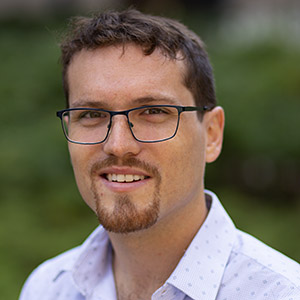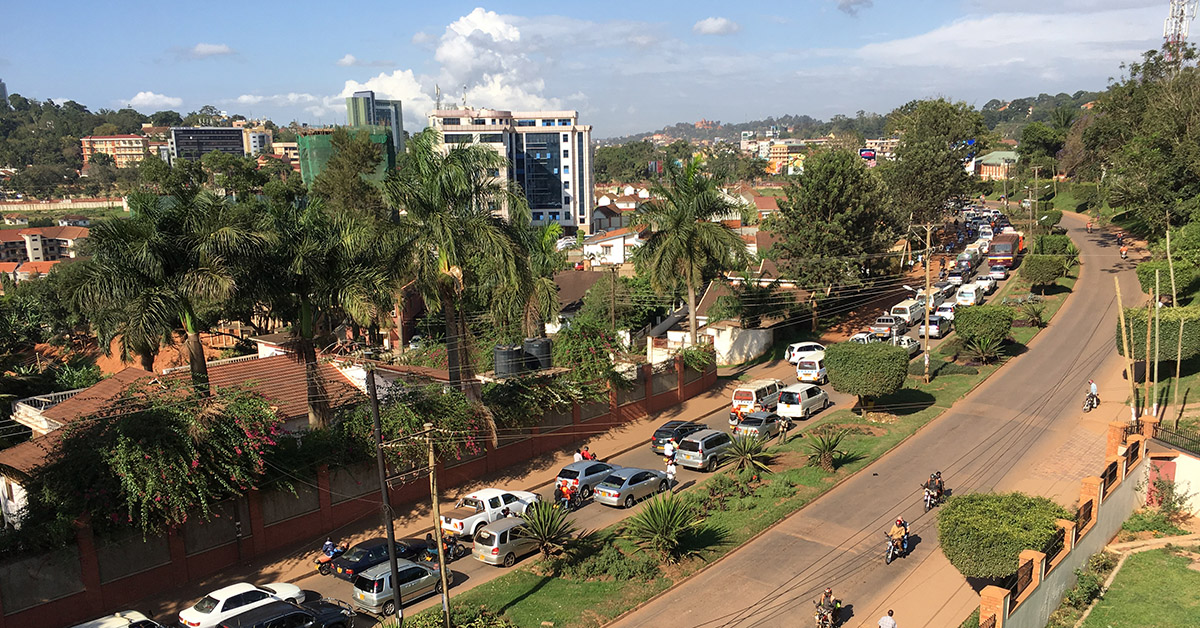When most students seek a biostatistics degree, it is a path to becoming a data and study conduct expert. For PhD student Adam Kaplan, however, biostatistics set him on the road to teaching, and eventually, a flight to Uganda.

“Working with faculty on their courses and tutoring Health Policy PhD students helped me realize that I like seeing the light of understanding flash across students’ faces,” says Kaplan. “I also like discovering answers with students instead of merely telling them what it is.”
Kaplan’s interest in helping students led him to teaching undergraduate computing and statistics courses at a nearby Twin Cities college. After that experience, Kaplan knew he wanted to continue teaching, adults and professionals in particular.
Kaplan consulted various School of Public Health (SPH) faculty, including advisers Eric Lock, Mark Fiecas, and Thomas Murray, about more teaching opportunities within the field. They suggested he talk to Kathy Huppler Hullsiek, a senior research associate with the SPH Division of Biostatistics and the Coordinating Centers for Biometric Research.
“I reached out to Kathy, who primarily works with Drs. David Boulware and Joshua Rein on Cryptococcus, Tuberculosis, and HIV studies in Sub-Saharan Africa,” says Kaplan. “They told me there is a need for lecturers to introduce R computing, data management, and data visualization in Uganda.”
R is a computing language and software environment for analyzing statistics in health research studies. As a biostats PhD student, Kaplan is versed in the use of R, and given his interest in educating others, also a great person to teach it.
Boulware, a professor in the Medical School, realized Kaplan’s experience and expertise fit the need in Uganda and offered him the opportunity to teach R there for a month this past June.
Kaplan flew to Kampala, Uganda, where he stayed at a house for University of Minnesota students, including one familiar to him and many around the school.
“At 1 a.m., my friend and PhD student Bridget Griffith greeted me at the door,” says Kaplan. Griffith, a recent Fogarty Fellow, who was in Uganda working on a separate project aimed at improving timely measles vaccination for mothers and young children.
In Kampala, Kaplan taught his classes at the “UMN Hub” on Mulago Hill. The hub is a health research collaboration between Makerere University and the University of Minnesota. Kaplan’s students included physicians, data managers, doctor’s of nursing, and lab technicians. He taught them tidyverse and ggplot2 using the R Studio interface, a software package with tools for computing and visually presenting data.
“On the last day I let them plot their own data. Some of them were very excited by the results and wanted to bring it into their work and propose project ideas,” says Kaplan. “I saw lots of smiles on their faces.”
Kaplan says he truly enjoyed the classes as well, and it’s fueling his enthusiasm for teaching statistics and computing in new, beneficial ways. After graduating, he hopes to work with initiatives that start training collaborations between centers in the U.S. and Africa. In particular, Kaplan wants to help organizations exchange researchers to help familiarize them with the different ways nations and cultures conduct research and analyze data.

